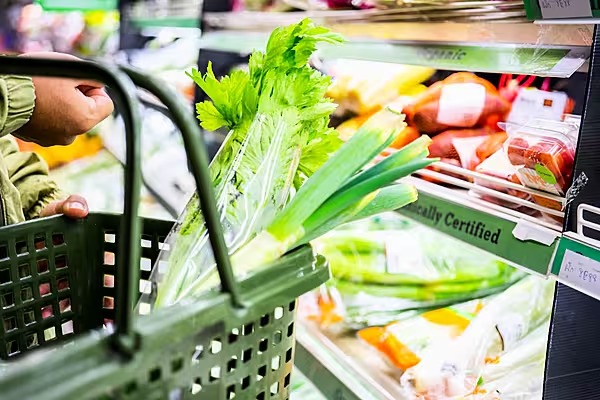Continued growth has been seen in the UK supermarket sector, with 6.6% growth in the four weeks ending 27th January 2024, new data from NIQ has revealed.
This growth is reflective of slowing food inflation (6.1%), which is at its lowest rate since June 2022.
The data also revealed increased volume (+1.3%) in grocery shopping after Christmas compared to last year, when inflation was in double digits. This indicates that shopper behaviour is normalising as inflation eases.
This comes after a report by NIQ company Growth from Knowledge which found that consumer confidence was increasing due to falling inflation.
Post-Christmas
NIQ also found lower promotional activity in January at 23% – compared to 26% the previous month – which is not surprising due to stores enticing customers over the Christmas period.
Wet weather and storms in January kept shoppers at home, which resulted in an increase in online grocery spend of 6.8%.
Despite this, online grocery retail maintains an 11.2% share of shopping, with in-store shopping only growing 5.3% in the same period.
Shoppers prioritised winter meals, with a focus on saving money and avoiding waste. This meant there was an increase in the sale of fresh meat (+11%) and poultry (+10%) as well as less expensive items such as frozen chips (+15%) and frozen fruit (+14%).
Products also indicated an interest in flexitarian diets, with higher sales of dried vegetables and pulses (+23%), rice and grains (+22%) and herbs and spices (+20%).
Unlike Irish data reported by Kantar, there was a 7.3% growth in the sale of beer, wine and spirits in the UK.
Retailers
Tesco maintained its position as leading UK retailer, and experienced growth of 6.9%.
Over the 12 weeks up to 27 January, the retailers that experienced the most growth were Lidl (+13.2%), Marks and Spencer (+11.6%) and Ocado (+11.3%).
NIQ’s head of retail and business insight Mike Watkins acknowledged that shopping habits are generally more conservative after the Christmas period. He noted at shoppers spend 24% less on food and drink in January than they had the previous month.
Watkins concluded, “As we look ahead and sentiments and shopper behaviour change, we expect to see the trend of managing overall basket spend continue even as inflation continues to slow, with Easter and warmer weather in spring giving the next boost to FMCG (fast-moving consumer goods) spend.”
Read More: UK Grocery Price Inflation Falls At Slower Rate Than Expected – Kantar





